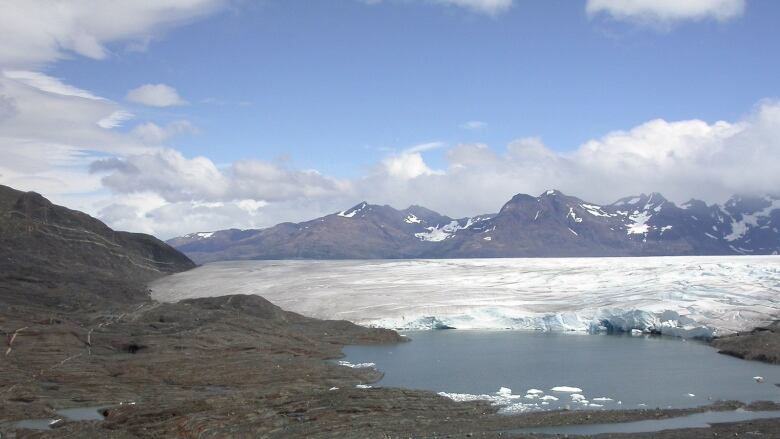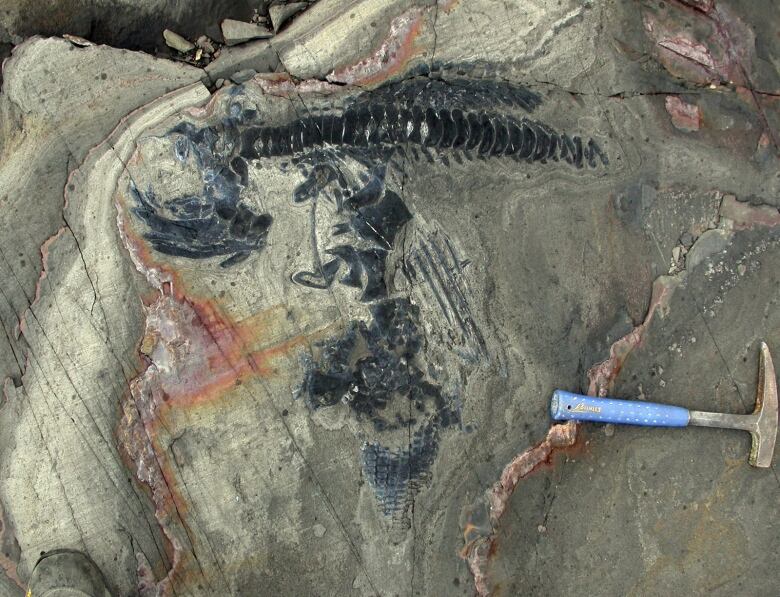Ichthyosaur fossil graveyard found in Chile
46 skeletons of ancient dolphin-like reptile found

Paleontologists have discovered nearly 50 entire ichthyosaur fossils in southern Chile, calling the find one of the best to date.
Ichthyosaurs whichmeans "fish-lizard" were dolphin-like marine lizards that lived around the time of the dinosaurs.
"This greatichthyosaurcemetery, the way the remains are deposited, is unique," Christian Salazar, paleontologist researcher and natural history museum curator, said on Tuesday.
"It's the most recent great find in their history. That's going to answer a lot of questions about how they became extinct, where they migrated to, how they lived."
The fossils of the dolphin-like creature were unearthed in the country's Torres del Paine National Park, whose spiky peaks and brilliant turquoise lakes make it a magnet for trekkers and nature lovers.
They included almost complete skeletons from 46 individuals fromfour different species. Some wereadults, including pregnant females and their embryos (ichthyosaursgave birth to live young, rather than laying eggs)and others were juveniles.The fossils preservednot just bones, but some raresoft tissue, said a news release from the Geological Society of America Bulletin, where the research was recently published.
Researchers said the marine reptiles, buried by rocks from the huge Tyndall Glacier, lived between the Triassic and Cretaceous periods, which extended from 250 million to 66 million years ago.
They are thought to have huntedin packs through a nearby submarine canyon forsmall fish and squid, said a news release from the University of Heidelberg.
The researchers believe the animalswere probably drownedby powerfulmudflowsfrom nearby shoresunleashed by earthquakes and avalanches as the continent broke apart during that period of geological history.
The fossils were found in about three months of excavating, Salazar added, and more were likely to be found.

With files from CBC News












_(720p).jpg)


 OFFICIAL HD MUSIC VIDEO.jpg)
.jpg)



























































































